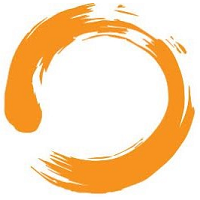For the longest time, love was a mystery to me. It was a concept that was so overblown and exalted, I couldn’t even begin to grasp it. I remember long conversations with friends trying to understand what people were talking about in movies and books and television shows, since the gaudy drama I saw played out on those screens and pages didn’t bear any resemblance to what I felt on a day-to-day basis. So what I felt must not be love, right? Maybe there was something wrong with me if “everyone else” was feeling this thing and I wasn’t.
Sure, I felt infatuation, lust, connection, longing. I felt friendship, kinship, affection, fondness, tenderness, attachment, intimacy. But I wasn’t sure what, if anything, I felt was “love.” And trying to figure it out just left me feeling alienated and anxious.
Those questions I was asking as a child predated the internet, but I was not alone then and the same universal question persists to this day. “What is love?” has topped the Google search charts since at least 2011.
At some point on my journey through life, I came to recognize that the emotion of “love” is not one singular experience, but rather exists on a spectrum and comes in many shapes and sizes. It turns out this parallels the philosophy outlined by psychologist Philippa Perry in an article for The Guardian in which she points out that “the ancients did not lump all the various emotions that we label ‘love’ under the one word. They had several variations,” including intimacy with friends and family; flirtation; mature love; more generalized love of humanity; self love; and sexual passion. Which would explain my confusion as a child, trying to narrow this rich experience down to a single feeling!
I also came to recognize that love was an active choice and experience, a way of being in and moving through the world. This perspective coincides with the philosophy put forth by Leo Buscaglia, author of Love: What Life Is All About. According to Buscaglia, we actually learn to love. He states that “Love is an emotion, that is true. But it is also a ‘response’ to an emotion and, therefore, an ‘active’ expression of what is felt. Love is not learned by osmosis. It is actually acted out and acted upon.”
This idea of love as not only emotional, but behavioral, is also reflected in the teachings of Thich Nhat Hanh, who says that “To love without knowing how to love wounds the person we love. To know how to love someone, we have to understand them. To understand, we need to listen.” In other words, until you have room in yourself for another, room which is created by true compassion, you will not be capable of behaving in a loving way – you will not be love. Thich Nhat Hanh summarizes the path to achieve this when he observes that “Often, we get crushes on others not because we truly love and understand them, but to distract ourselves from our suffering. When we learn to love and understand ourselves and have true compassion for ourselves, then we can truly love and understand another person.”
Wherever you are on your path to learning and becoming love, start with compassion. As learning organisms, human beings are capable of constant growth and dramatic shifts in our consciousness. No matter where you started, use whatever tools and opportunities you have before you now. Go inside and feel your own longing for health and balance and connection. Know that you are learning; we all are. And most of all, don’t believe the hype when it comes to love. Instead, believe your own deep inner knowing; find – and listen to – your own truth.



